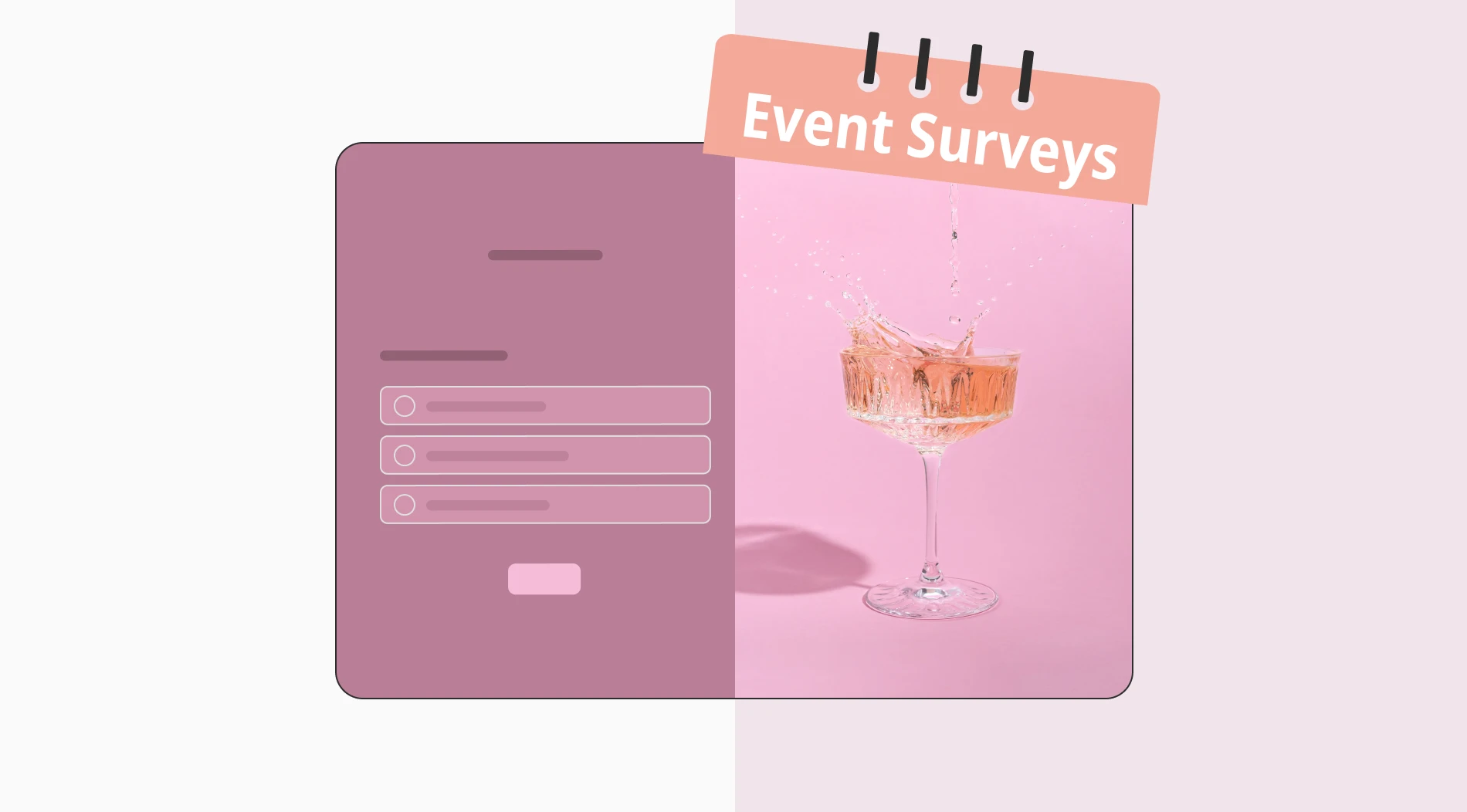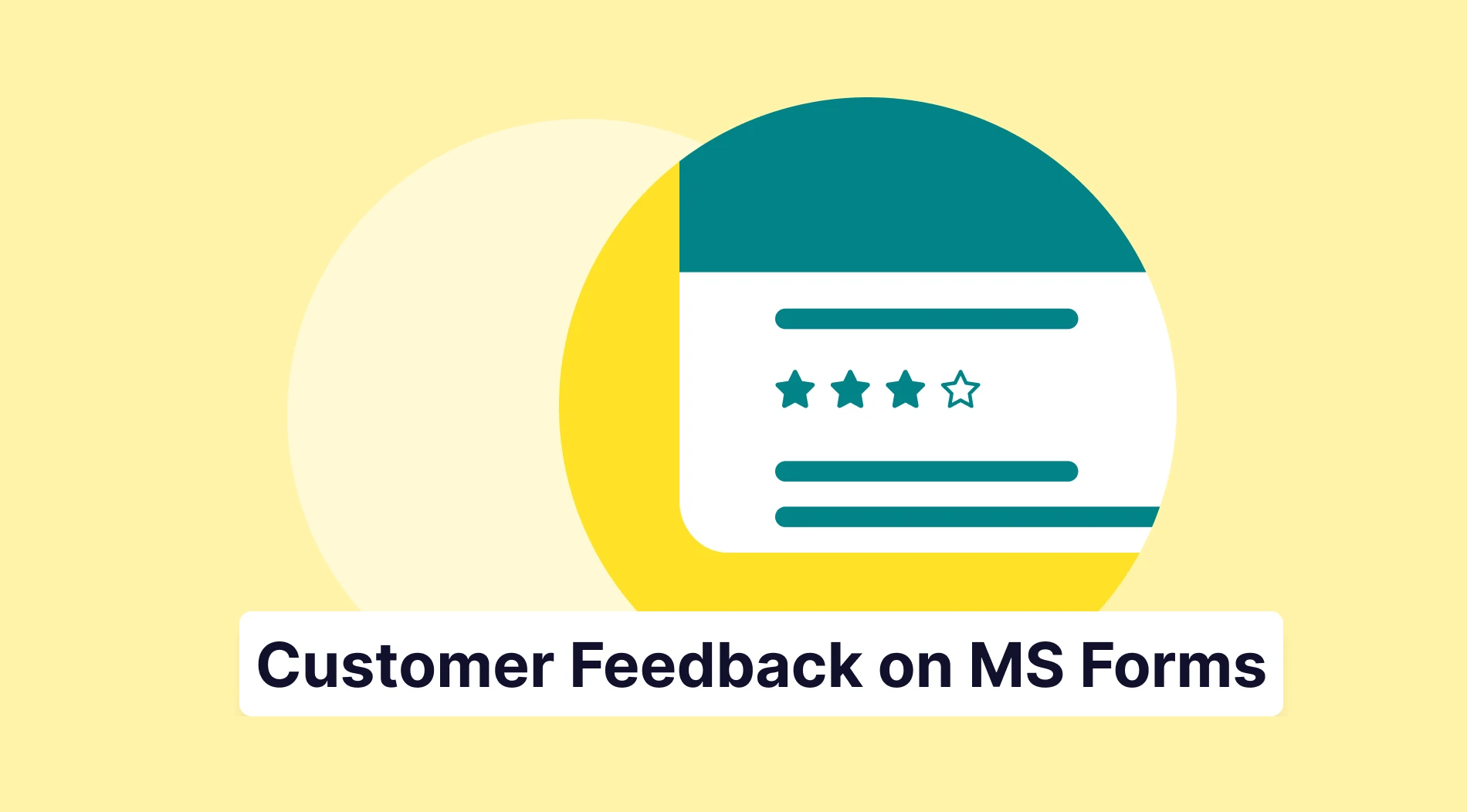When conducted before, during, and after an event, surveys serve as a valuable conduit for participant input and ideas. These surveys are crucial for helping event planners measure participant satisfaction, assess event performance, and find areas for improvement. This benefit makes event surveys an essential part of event planning.
This article offers a thorough introduction to event surveys. It focuses on their definition, question types, and significance in the event planning process. In addition to discussing the advantages of using event surveys for data-driven improvements and greater participation and response rate, the article provides samples of survey questions. All things considered, it is a helpful tool for event coordinators.
Let’s start with the basics: What is an event survey?
Event surveys are pre-designed questionnaires that include open-ended and multiple-choice questions to gather feedback from attendees. They are usually provided in digital format and can be given to participants prior to, during, or following the event.
Event survey types
Event planning survey questions are vital to event management. They give planners important input that makes subsequent events better. By knowing their guests' event experiences, tastes, and views, event planners may improve several areas of their events with the help of event feedback survey questions.
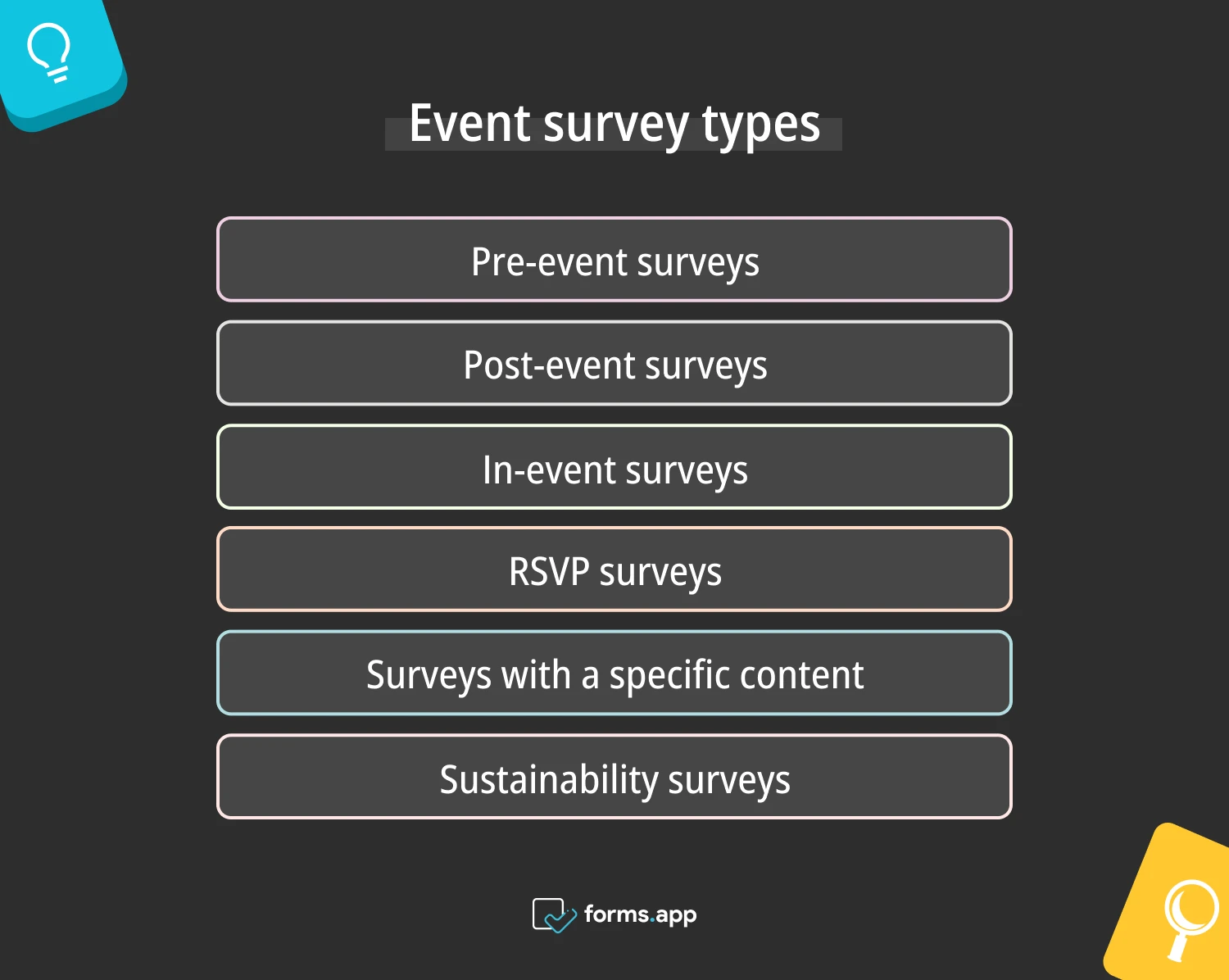
Types of event surveys
1. Pre-event surveys
Pre-event survey questions are intended to collect data on possible participants' expectations, preferences, and interests before the event. This kind of survey aids event planners in customizing the program to their target audience's requirements and preferences. By understanding attendees' expectations beforehand, organizers can tailor the event to meet their needs and create a more personalized experience.
2. Post-event surveys
Post-event survey questions evaluate attendees' general level of satisfaction, solicit input on particular elements of the event, and pinpoint areas for development. They offer a thorough perspective on how participants felt about the event. Through the analysis of post-event feedback, organizers may pinpoint areas of strength and weakness, which helps them improve overall attendee satisfaction for future events.
3. In-event surveys
In-event questionnaires measure in-the-moment comments and continuous attendance experience. Organizers can use this kind of survey to make quick changes and enhancements when necessary. Real-time feedback collection with these types of questions allows event planners to quickly resolve any problems or worries, making sure that guests have a smooth and happy experience the whole time.
4. RSVP surveys
In the event RSVP form, the acronym RSVP stands for “Répondez s'il vous plaît,” which translates to “Please respond.” An RSVP is a request for confirmation from invited guests on their attendance status in the event planning process. For an event to be planned successfully, organizers need to have accurate RSVPs in order to handle logistics, catering, and seating assignments.
5. Surveys with a specific content
Surveys with specific questions about the event's content are used to get input on certain seminars, presentations, or sessions. Participants can offer feedback on the quality, applicability, and delivery of the material. The aforementioned data helps organizers in assessing the most well-received sessions and modifying the content offered in subsequent events.
6. Sustainability surveys
Attendee opinions on sustainability measures and the event's environmental impact are gathered through sustainability surveys. These surveys may ask about waste management, and attendees' opinions of how good an idea to attend the event was. This input helps in enhancing initiatives and promoting environmentally friendly events for organizers.
20+ Must-ask event survey questions
Carefully considering every aspect of an event's planning is necessary to guarantee that guests have a flawless experience. Comprehending their viewpoints and experiences is equally important for ongoing development. These are 20+ essential survey questions for events that are meant to get feedback from attendees.
1. Will you attend the event?
2. What is your primary reason for attending this event?
- Networking opportunities
- Learning from experts
- Professional development
- Interest in the topic
3. Overall, did our event meet your expectations?
4. How likely are you to attend future events in the future organized by us?
- Very likely
- Likely
- Neutral
- Unlikely
- Very unlikely
5. How would you rate the event venue/facilities?
- Excellent
- Good
- Fair
- Poor
6. Would you recommend this event to a colleague or friend?
- Definitely
- Probably
- Not sure
- Probably not
- Definitely not
7. Were your expectations for the event met, exceeded, or not met?
- Exceeded
- Met
- Not met
8. How do you feel about the duration and timing of the event?
- Perfect
- Too long
- Too short
- Inconvenient
9. Would you be interested in volunteering or contributing to future events?
10. Were there any sessions or activities you found particularly unhelpful or irrelevant?
11. Did you encounter any difficulties during the registration process?
12. How well did the event content align with the event description?
- Completely aligned
- Mostly aligned
- Somewhat aligned
- Not aligned
13. Do you have any suggestions for improving this session?
14. How inclusive and welcoming did you find the event environment?
- Very inclusive
- Inclusive
- Neutral
- Not inclusive
- Very not inclusive
15. How do you prefer to receive event materials and resources?
- App
- Website
- Other
16. Are you satisfied with the level of interaction and engagement during sessions?
17. How did you hear about this event?
- Social media
- Email newsletter
- Website
- Friend or colleague
- Advertisement
18. Were there any concerns regarding food safety?
19. Do you have any additional comments or feedback?
20. How engaging do you find the speaker?
- Very engaging
- Engaging
- Neutral
- Not engaging
- Very not engaging
Why ask event survey questions
Event surveys are more than just a formality; they are a calculated step in improving attendees' experiences. Event survey questions provide organizers access to a wealth of information that helps with data-driven enhancements, engagement, and real-time problem solutions.
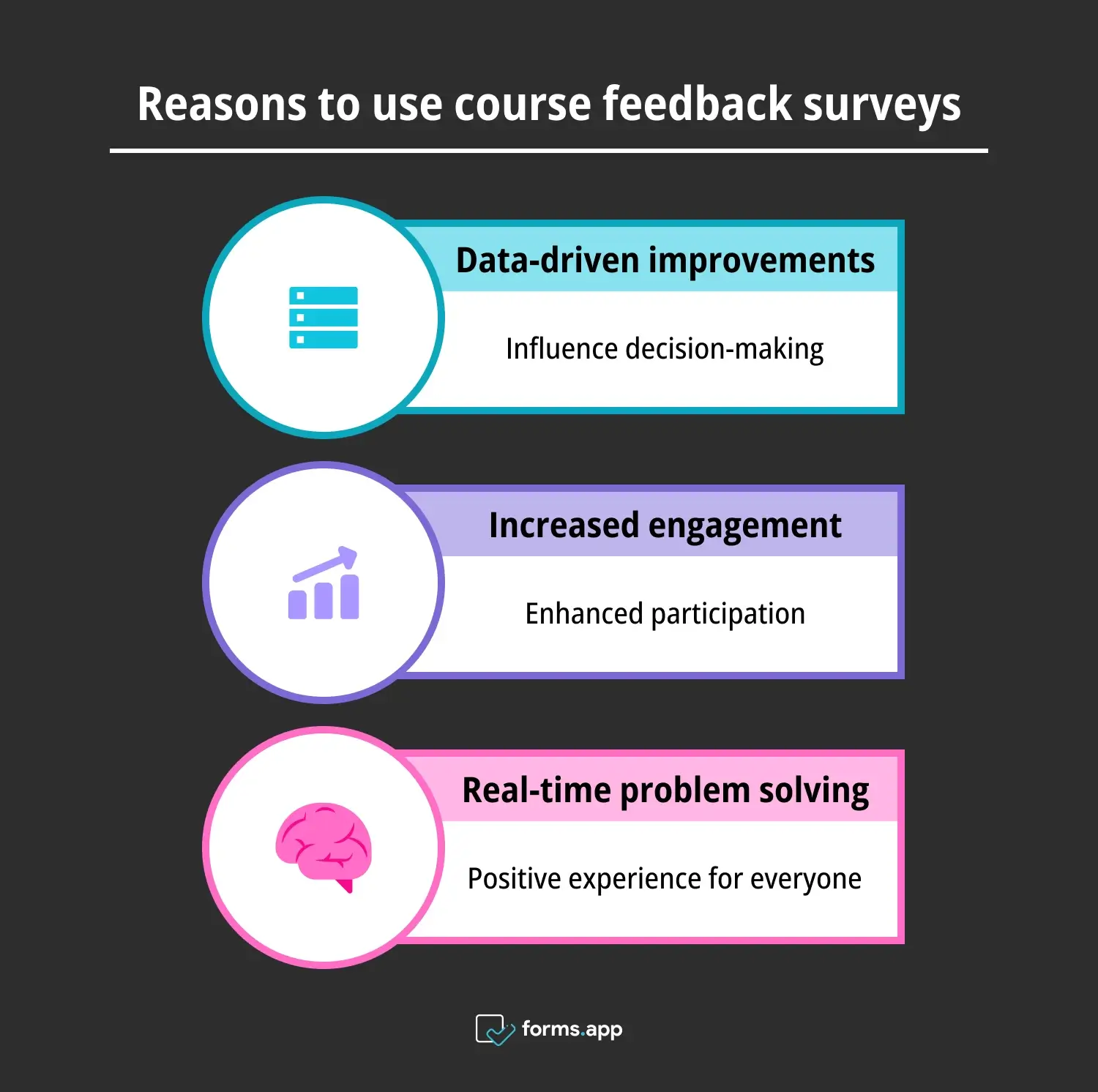
Benefits of event surveys
🗃️Data-driven improvements
Organizers may analyze the data obtained from event surveys to pinpoint patterns, preferences, and opportunities for improvement. By using data to influence decision-making, organizers may better match future events with attendees' expectations. They can include survey questions for training effectiveness.
📈Increased engagement
Utilizing surveys to interact with participants shows that you care about their experience and encourages a sense of ownership over the outcome of the event. For instance, when crafting post-event survey questions for employees, organizers can ensure that their perspectives are valued and considered in refining future experiences for corporate events.
🧠Real-time problem solving
Event surveys provide participants with a forum to express any worries or problems they have while at the event. With this real-time input, organizers can quickly resolve any issues and guarantee a more positive experience for everyone. Organizers show their commitment to guest pleasure and timeliness by resolving issues as they come up.
How to create an event survey (free templates & easy steps)
Creating an event survey offers the chance to learn important details about the preferences and experiences of guests. This procedure may be streamlined by using a platform such as forms.app, which offers an assortment of survey templates and a simple interface.
- Access forms.app: Begin by logging into your forms.app account or sign up if you're new to the platform.
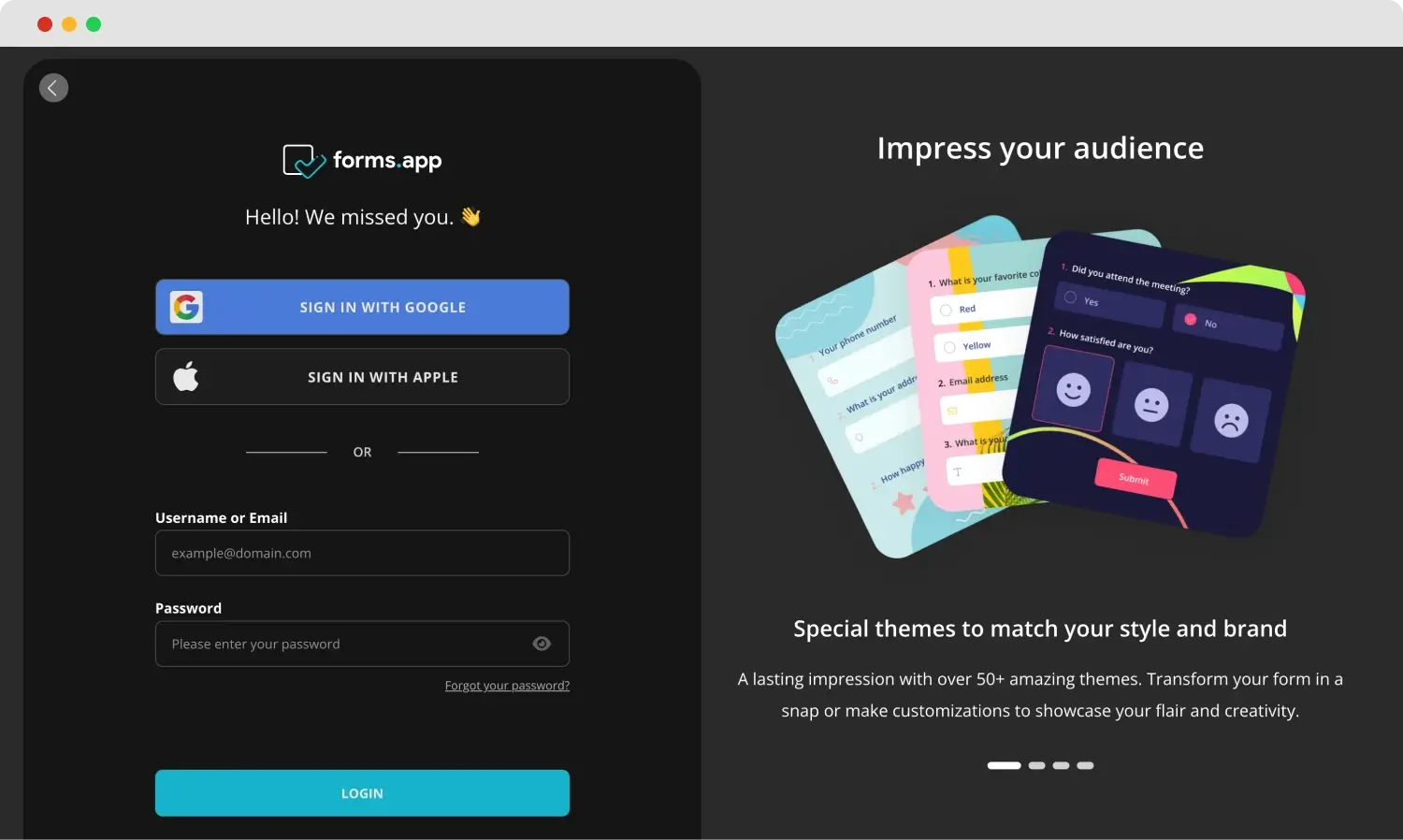
Create a forms.app account
- Choose survey type: Once logged in, select the option to create a new survey form. forms.app offers various survey templates tailored to different event types, making it easy to get started.
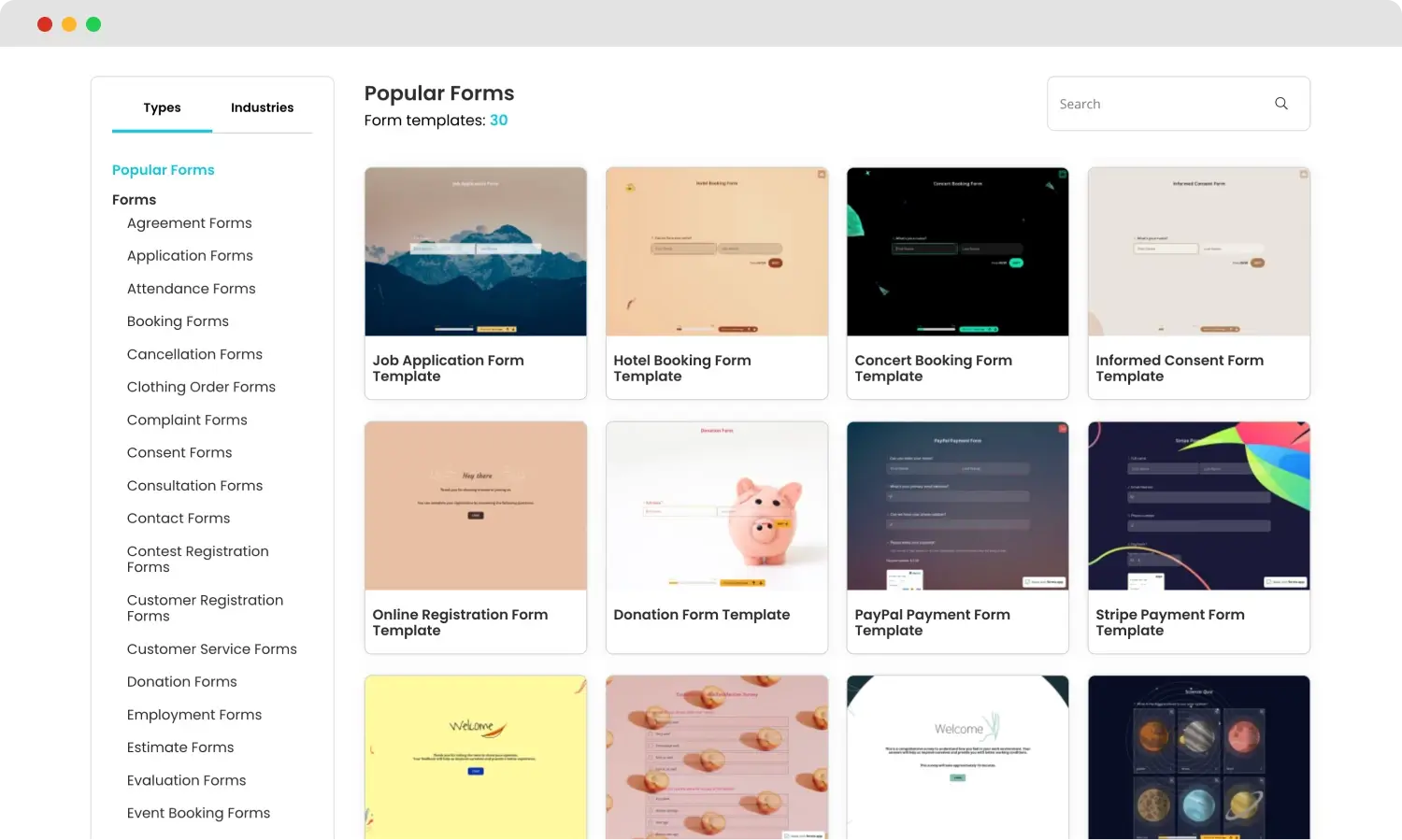
Choose a free template
- Select a template or start from scratch: Depending on your preferences, you can either choose a pre-designed survey template that aligns with your event's theme. Or, you can start from a blank form. You can create an online event registration form or benefit from event booking form templates.
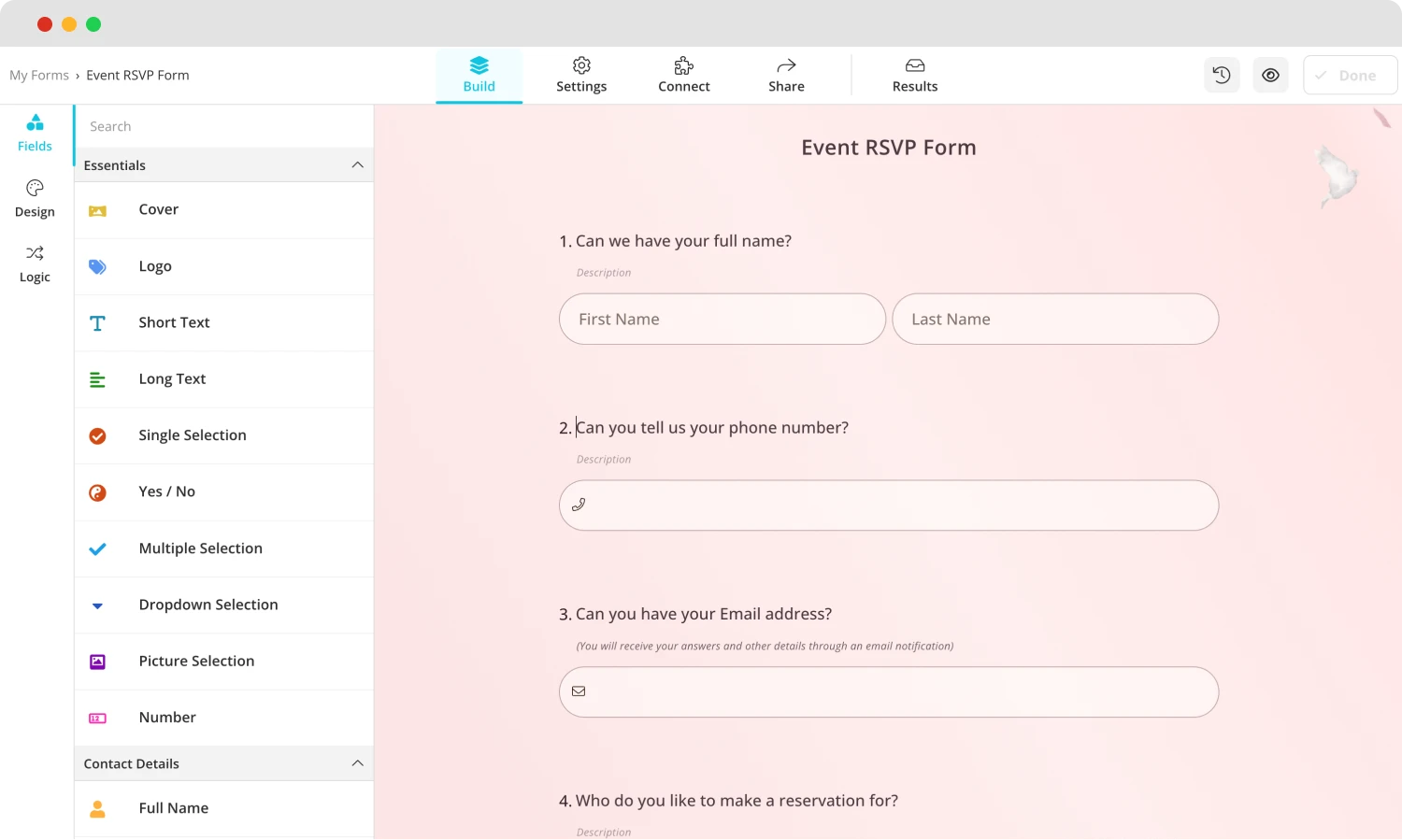
Add your event invitation questions
💡Tip: The AI function on forms.app can help you create your event survey more quickly. The AI-driven tools from forms.app allows you to quickly and simply create survey forms customized to the requirements of your event. AI will quickly develop a personalized form template for you. This helps you create your survey more quickly and efficiently.
- Customize your survey: You can customize your survey by adding, editing, or removing questions to gather valuable feedback from attendees. Consider including questions about event satisfaction, logistics, and suggestions for improvement.
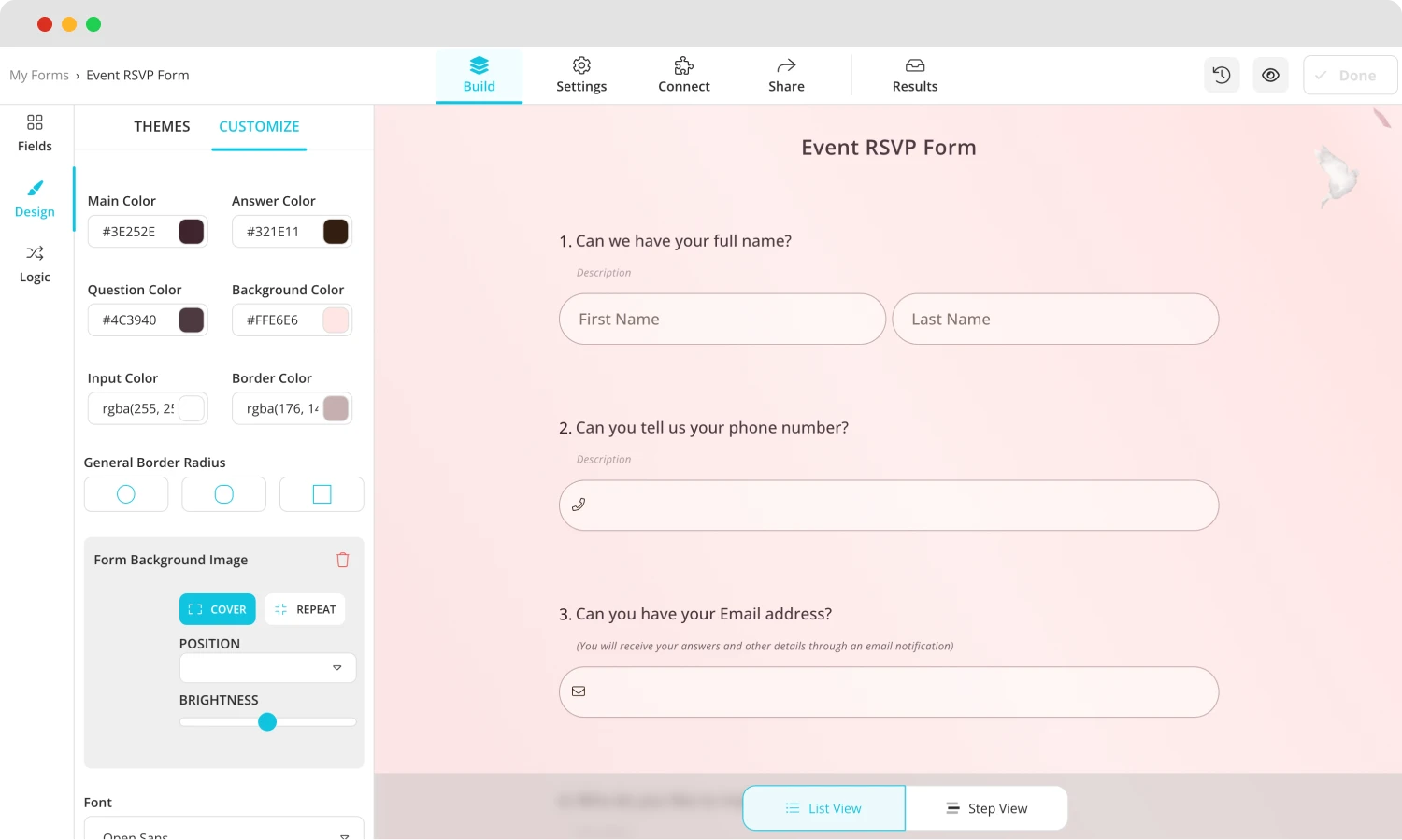
Customize your event survey
Key points to take away
For event planners looking to understand better and improve the guest experience, surveys are a vital tool. Event satisfaction survey questions cover a wide range of subjects, including general satisfaction, venue experience, content alignment, engagement levels, and improvement ideas.
In this article, we have gone through the significance of event surveys and their function in obtaining insightful participant input. This can enhance event management and preparation. We discussed various survey formats, such as RSVP, pre-event, in-event, post-event, content-specific, and sustainability surveys. You can explore how forms.app can simplify the process of creating effective event surveys.
Ayşegül is a content writer at forms.app and a full-time translation project manager. She enjoys scrapbooking, reading, and traveling. With expertise in survey questions and survey types, she brings a versatile skill set to her endeavors.
